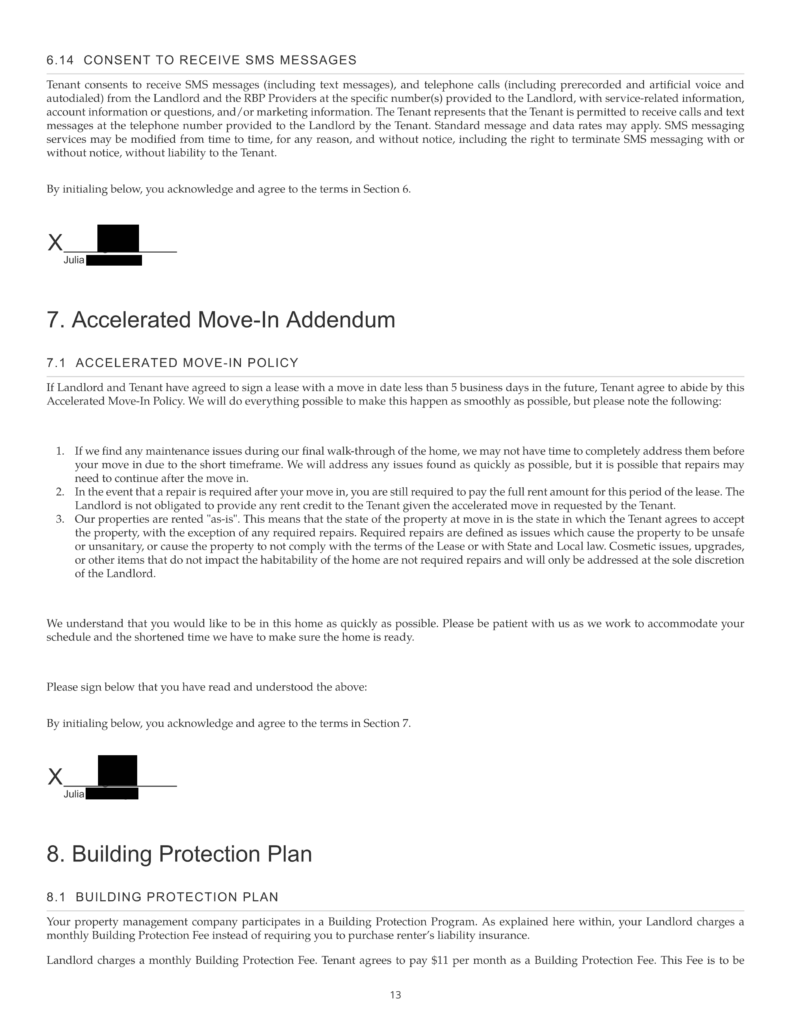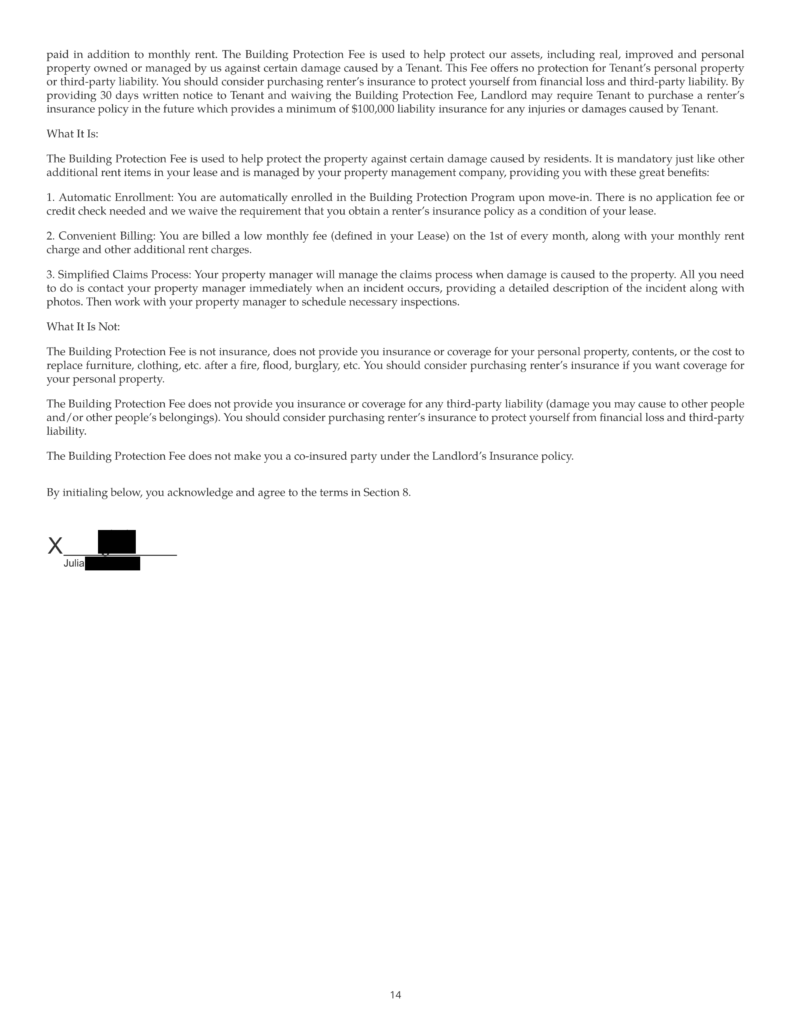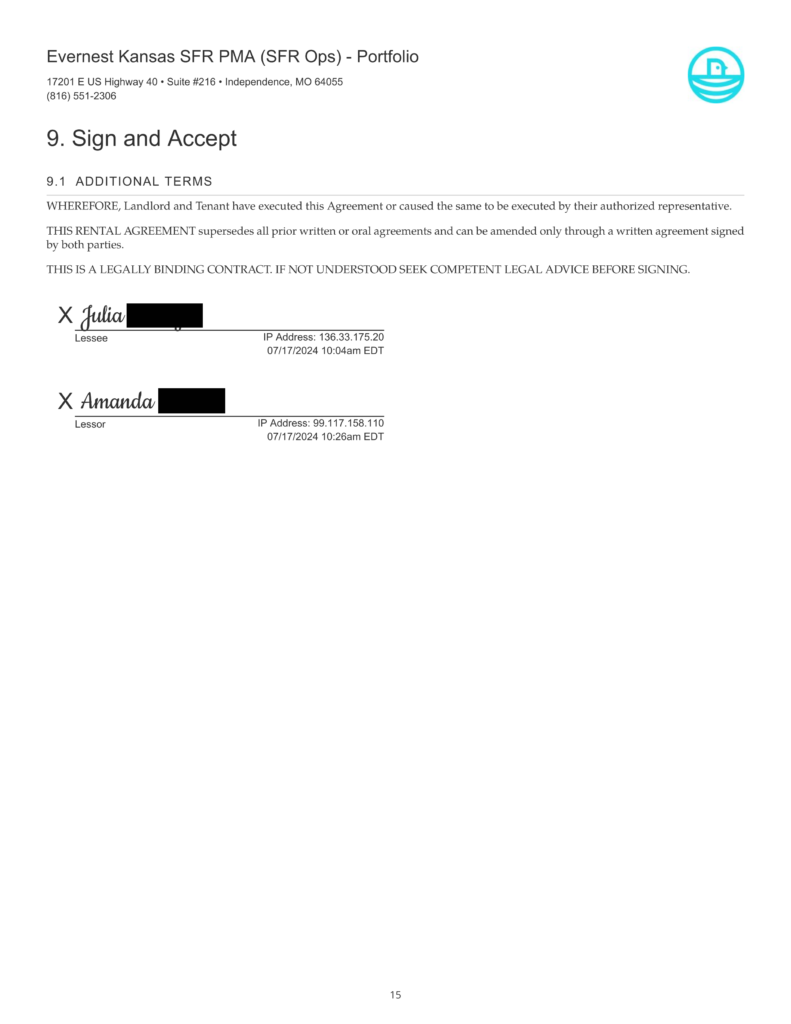Evernest Kansas Lease Violations: What Renters Need to Know
If you’re renting from Evernest Kansas property management, you may be facing lease violations that could impact your legal rights and financial security. Kansas tenant rights protect renters from unfair practices, yet many have reported Evernest Kansas rental complaints related to excessive fees, security deposit disputes, and property maintenance failures. Whether you’re in Kansas City, KS, Wyandotte County, or elsewhere in the state, it’s essential to understand Kansas lease agreement violations and how to take action against unfair rental fees in Kansas.
Hidden Fees & Unjust Charges in Evernest Kansas Leases
One of the most common Evernest Kansas lease violations is the inclusion of unfair rental fees. The Kansas Consumer Protection Act (KCPA) prohibits deceptive pricing, but Evernest tenants are often forced to pay mandatory fees disguised as “Resident Benefits” or “Building Protection Plans.” These fees, often non-refundable and non-negotiable, violate the Kansas landlord-tenant law and could be classified as rental fraud in Kansas.
Some problematic charges include:
- $39.99/month Resident Benefit Package (RBP) fee for services tenants may not need.
- $250 lease modification fee for any requested changes.
- 10% late rent penalty that may be unenforceable under Kansas rental laws and tenant protections.
- $85 notice posting fee for rent delinquency, an unfair penalty that Kansas housing authority complaints frequently cite.
If you’ve encountered these unjust rental fees in Kansas, you can report them to the Kansas Attorney General tenant complaints division or challenge the charges in Kansas City rental fraud cases.
Evernest Kansas Maintenance & Habitability Violations
Another major concern for renters is Evernest Kansas lease violations related to habitability. Under Kansas landlord-tenant law, property owners must maintain rental units in a safe, habitable condition, yet some tenants have reported ongoing issues with:
- Mold growth ignored by property management.
- HVAC failures despite tenants being forced to change air filters.
- Pest infestations that Evernest shifts responsibility for, despite Kansas law requiring landlords to address structural-related infestations.
The Kansas housing code violations prohibit landlords from waiving habitability responsibilities, yet Evernest’s Mold Addendum attempts to do just that. If you’ve been subjected to substandard living conditions, you have grounds to file complaints with the Wyandotte County tenant protections board or a Kansas rental contract disputes attorney.
Security Deposit & Early Lease Termination Issues
Many Evernest Kansas rental complaints involve security deposit disputes. Under Kansas rental laws, landlords must return deposits within 30 days and provide a detailed, itemized list of deductions. However, Evernest tenants have reported:
- Delayed security deposit refunds beyond the legal timeframe.
- Unjustified deductions for “administrative” or “cleaning” fees.
- Lack of transparency regarding the deposit process.
Additionally, Evernest’s Kansas lease agreement violations include excessive early termination fees. If a tenant wants to move out early, the lease demands:
- Three months’ rent as a penalty, a potential violation of Kansas rental laws and tenant protections.
- 60-day advance notice, which is above standard lease terms.
- Additional fees that may exceed actual landlord damages, which can be challenged as rental fraud in Kansas.
If you believe Evernest violated your rental rights, file a complaint with the Kansas Attorney General tenant complaints division and Kansas housing authority complaints board.
Kansas Tenant Legal Rights & How to Take Action
If you are experiencing Evernest Kansas lease violations, you have legal options:
- Review your lease for unfair clauses – Compare your lease against Kansas City KS rental violations laws to determine if it contains illegal provisions.
- Document all violations – Take pictures, save emails, and keep records of maintenance failures, unfair fees, or lease misrepresentations.
- File a formal complaint – Report Kansas lease agreement violations to the Kansas Attorney General, HUD, FTC, and local housing authorities.
- Seek legal help – If Evernest refuses to comply, consider contacting a Kansas rental contract disputes attorney to pursue a case in Kansas City rental fraud cases courts.
Final Thoughts on Evernest Kansas Rental Complaints
The Kansas Consumer Protection Act is designed to protect tenants from fraudulent rental agreements, excessive charges, and unsafe living conditions. If you are renting from Evernest Kansas property management and believe they have engaged in lease violations, do not hesitate to take action. Understanding Kansas tenant rights will help you navigate your options and fight back against unfair rental fees in Kansas.
Issue:
- The lease states the property is in Missouri, but it is actually in Kansas.
- It references a state-specific addendum, which was never provided.
Breach of contract – Failure to provide the required addendum.
Fraudulent misrepresentation – Falsifying jurisdiction creates confusion and removes Kansas-specific tenant protections.
Since the unit was never licensed, the lease misrepresented the legal status of the rental.
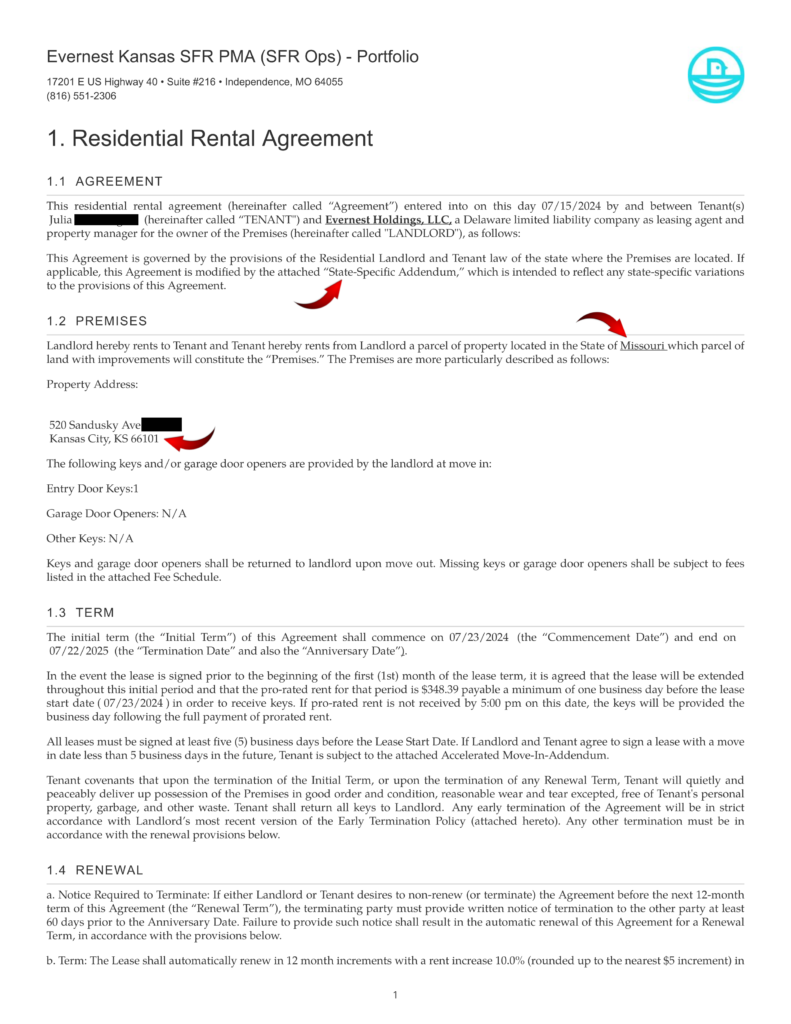
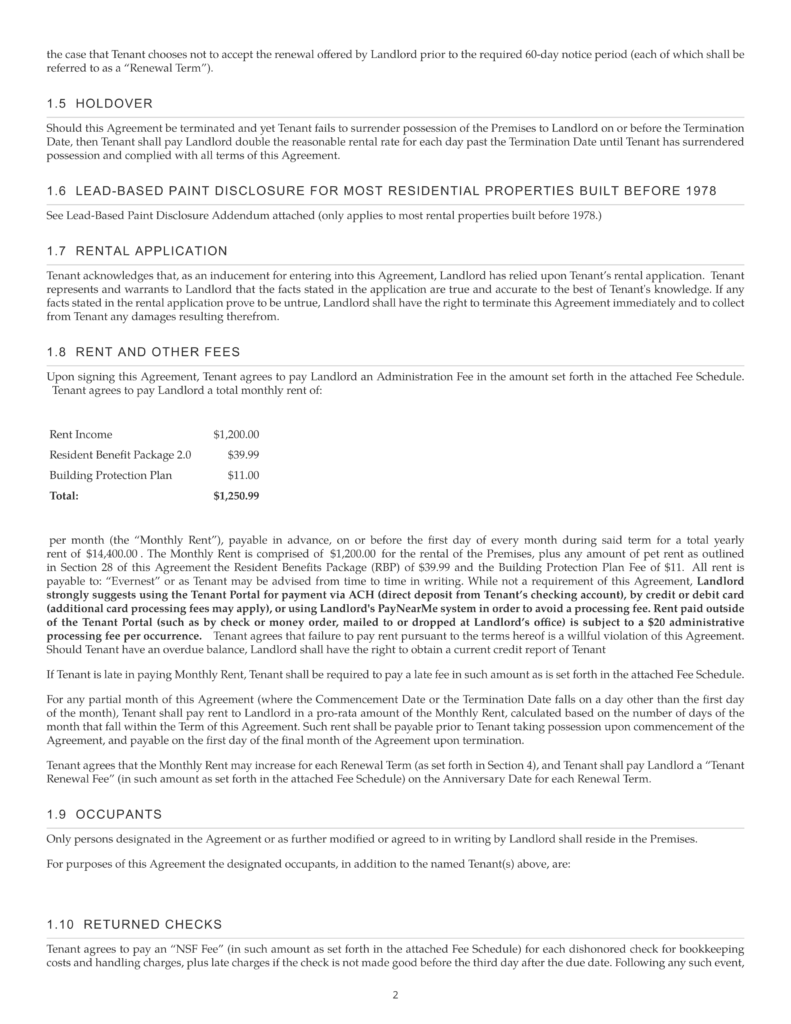
Issue:
Rent was demanded despite the unit being illegal to rent.
No mention that the unit lacked a valid rental license.
Violation:
Unjust enrichment & fraud – The landlord knowingly collected money for an illegal rental.
Mail & wire fraud – Rent demands were sent via USPS and email.
Simple Explanation:
The landlord was illegally collecting money for a unit they knew was not legal.
Issue:
- Lease states the landlord is responsible for habitability, but they ignored major repairs (mold, leaks, ceiling hole).
- Lease allows them to access the unit for maintenance, but they failed to maintain it.
Violation:
- Breach of habitability standards under Kansas law.
- Retaliation – They refused repairs after you questioned their legal status.
Simple Explanation:
The lease says they must maintain the property, but they ignored serious problems.
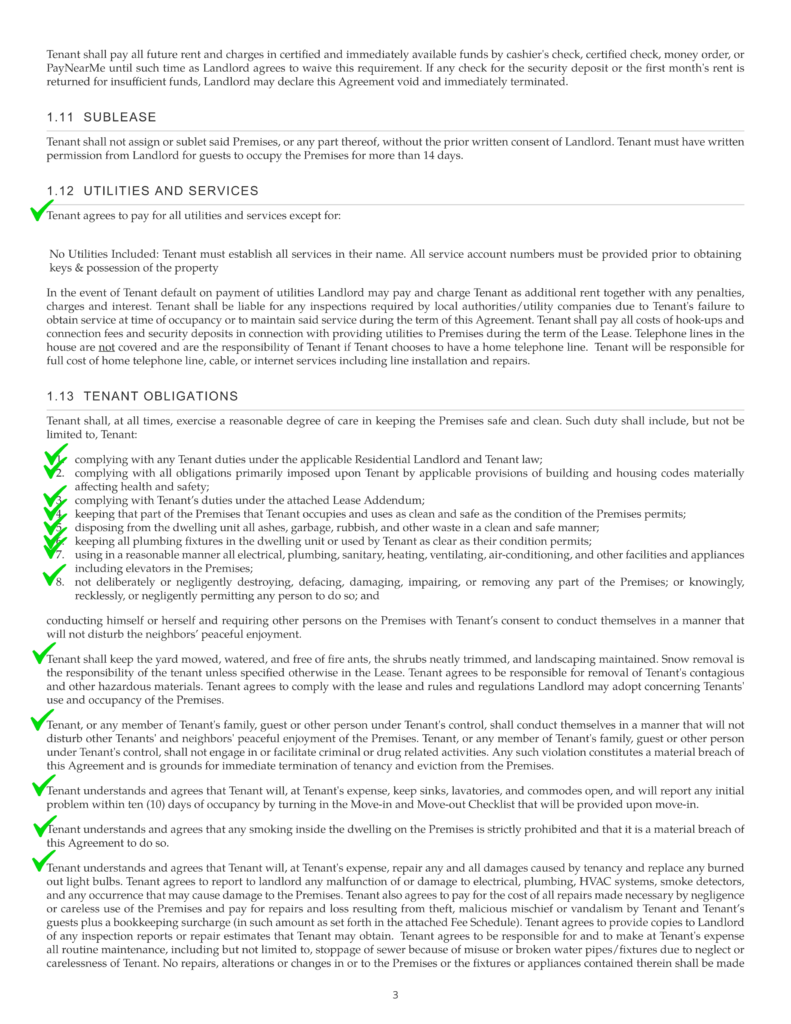

1.14 States the landlord must keep the premises in fit and habitable condition per landlord-tenant law.
- Contradiction: The property was not habitable due to mold, leaks, and ceiling collapse.
- Issue: The lease acknowledges a legal duty that the landlord failed to uphold.
“As-Is” Clause
- Kansas law requires habitability, meaning a lease cannot waive essential services.
Release of Liability (Section 1.16)
Issue: This clause may be unenforceable if it conflicts with Kansas habitability laws.
Right to Access (Section 1.18)
- Landlord must provide reasonable notice before entering, except in emergencies.
- Issue: If they failed to perform repairs while maintaining the right to enter, this could be bad faith.
Security Deposit (Section 1.23)
Issue: If your deposit was misused or not properly documented, you may have a claim.
Unclear refund policies – if deductions are made, the lease does not ensure proper documentation.
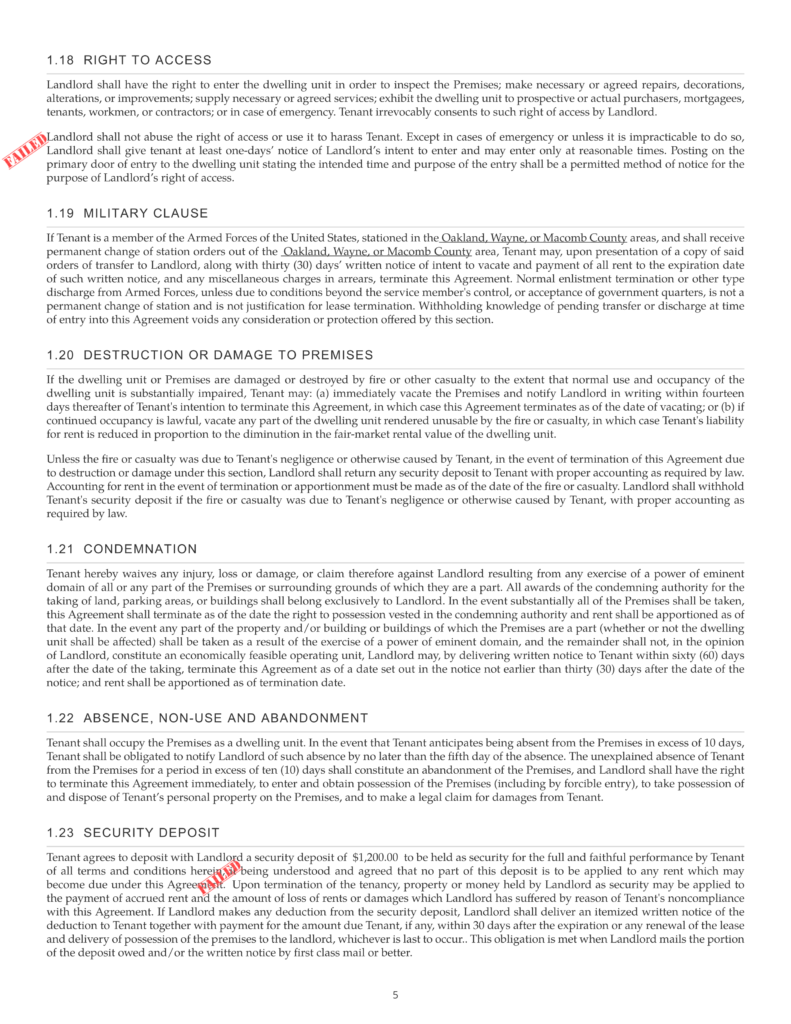
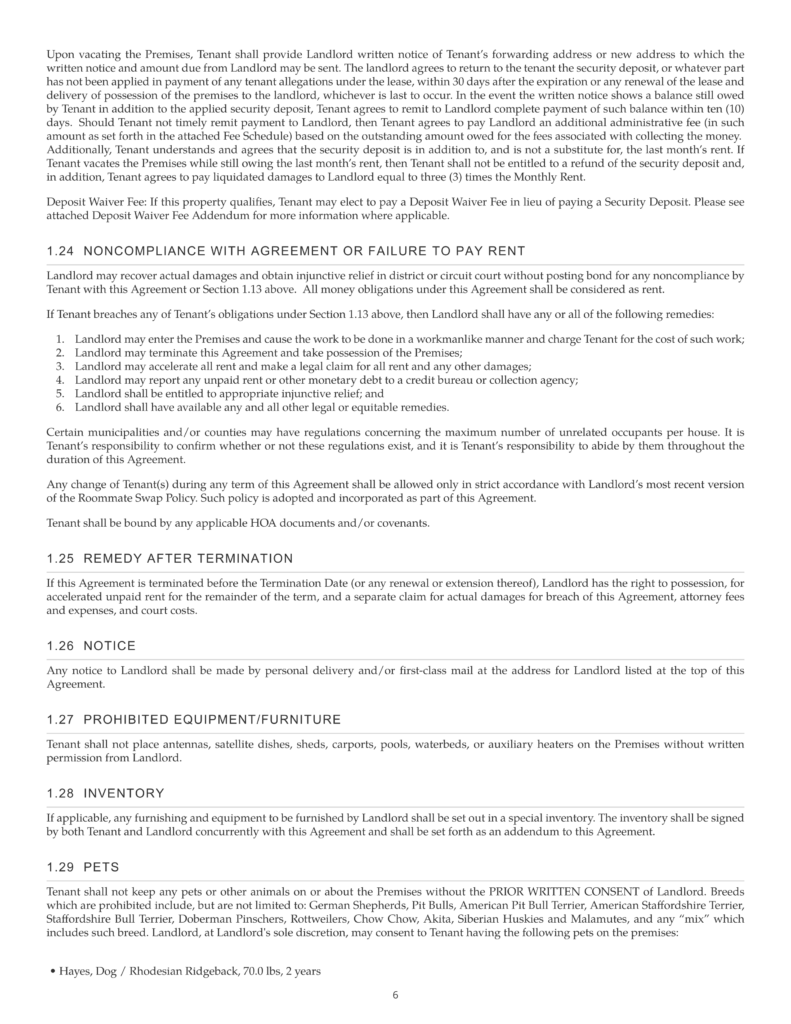
Issue: 1.24 This section allows the landlord to take excessive actions against the tenant without due process.
Clause: “Landlord may accelerate all rent and make a legal claim for all rent and any other damages.”
Clause: “Any notice to Landlord shall be made by personal delivery and/or first-class mail.”
Potential Violation: Tenants should have the option to send notices electronically.
Issue: This forces the tenant to waive claims against the landlord if they do not notify them of an issue in writing.
Clause: “Unless Tenant has provided prior written notice to Landlord of any violation… Tenant shall be deemed to have waived any such violation.”
Potential Violation: Kansas law does not allow waivers of habitability rights.
Issue: The landlord guarantees peaceful enjoyment but has failed to provide habitability.
Clause: “Tenant… shall and may peaceably and quietly have, hold, and enjoy the Premises.”
Contradiction: The property’s code violations and illegal rental status make this untrue.
Clause: “Tenant agrees to observe faithfully all rules and regulations that Landlord has now or may hereafter adopt.”
Potential Violation: Kansas law requires leases to be clear and complete upon signing.
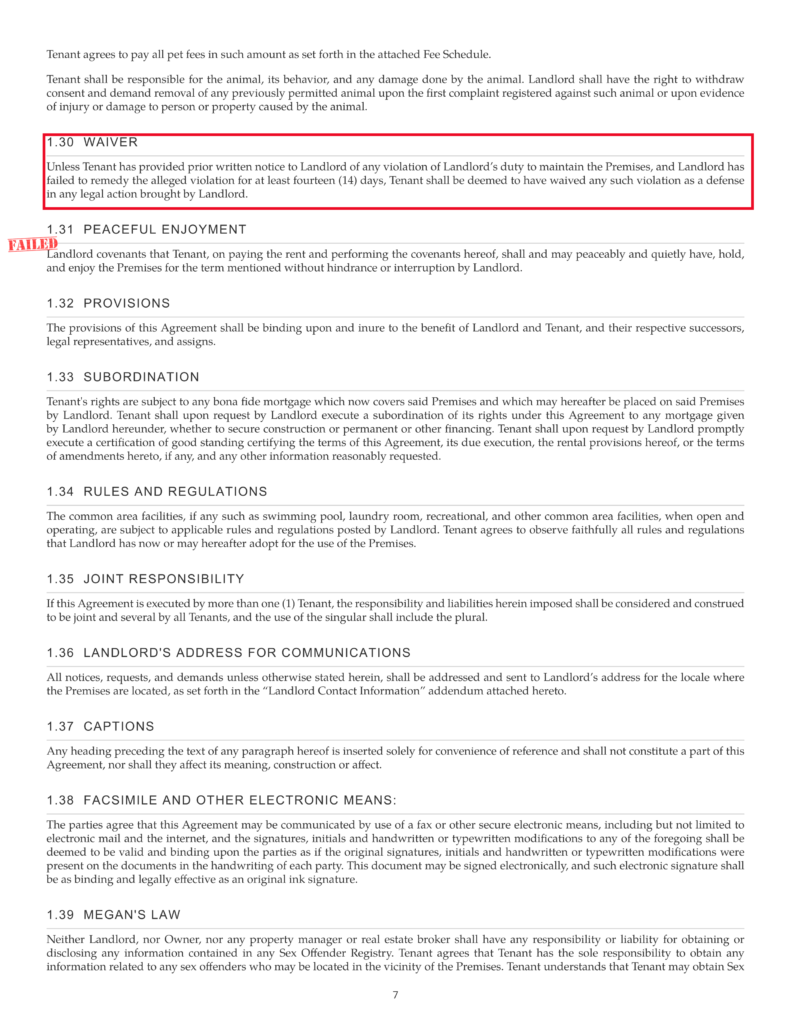
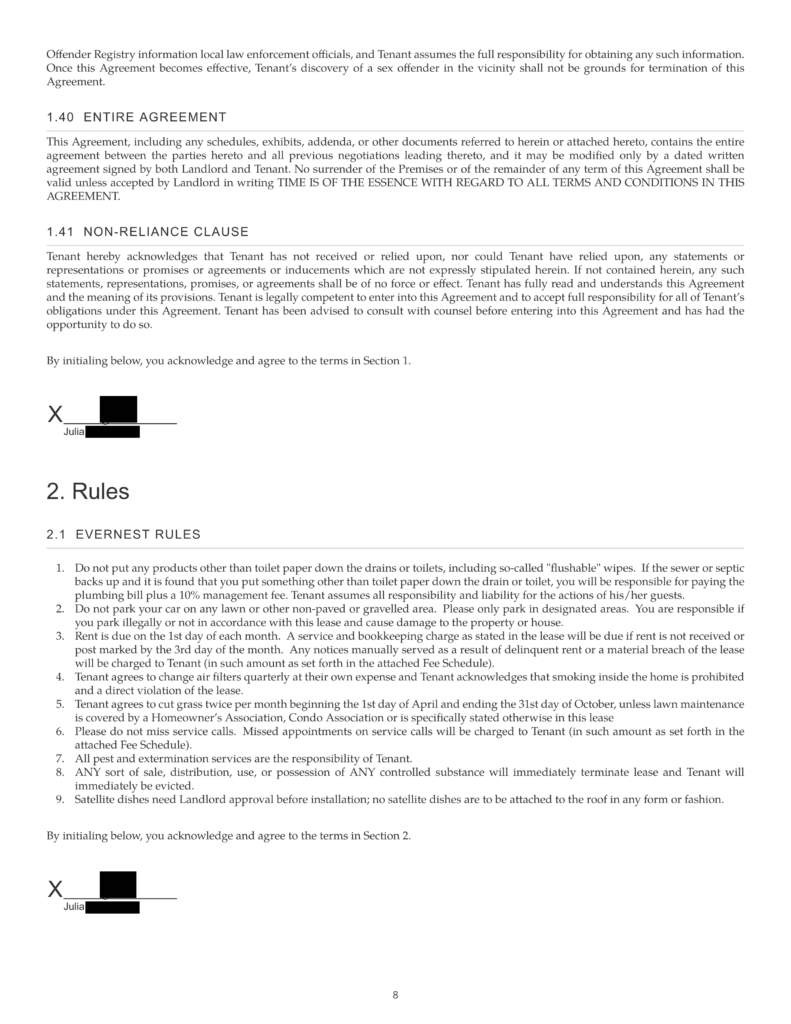
Rules and Regulations (Section 2.1)
Potential Violation: Kansas law generally requires leases to be clear and complete at signing.
Clause: “Tenant agrees to abide by all Evernest rules now or in the future.”
Issue: The lease allows rules to be changed unilaterally without tenant consent.
Clause: “NSF Fee of $75.00 for each dishonored, failed, or rejected payment made by Tenant.”
- Issue: While Kansas law allows reasonable NSF fees, $75 may be above industry norms.
$250 Utility Disconnection Fee
Issue: If the utility was disconnected due to the landlord’s failure to maintain the property, charging this fee would be unfair.
Clause: “Unauthorized disconnection of utility services by Tenant is subject to a $250 disconnection fee per occurrence.”
Issue: If the utility was disconnected due to the landlord’s failure to maintain the property, charging this fee would be unfair.
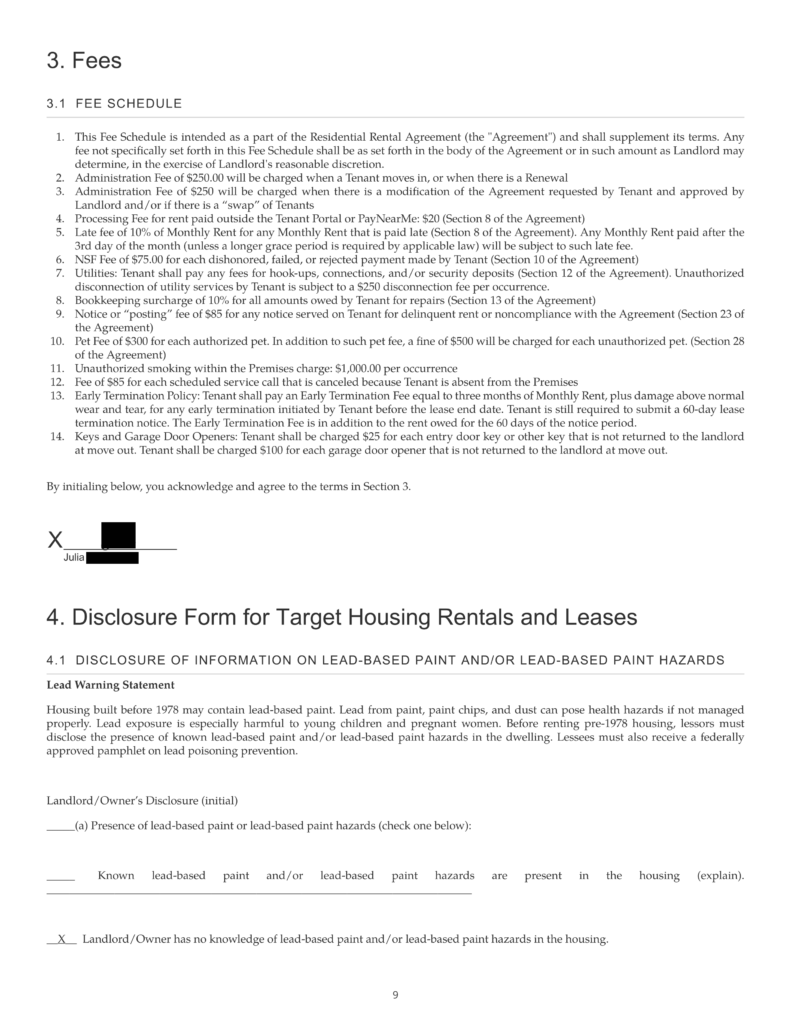
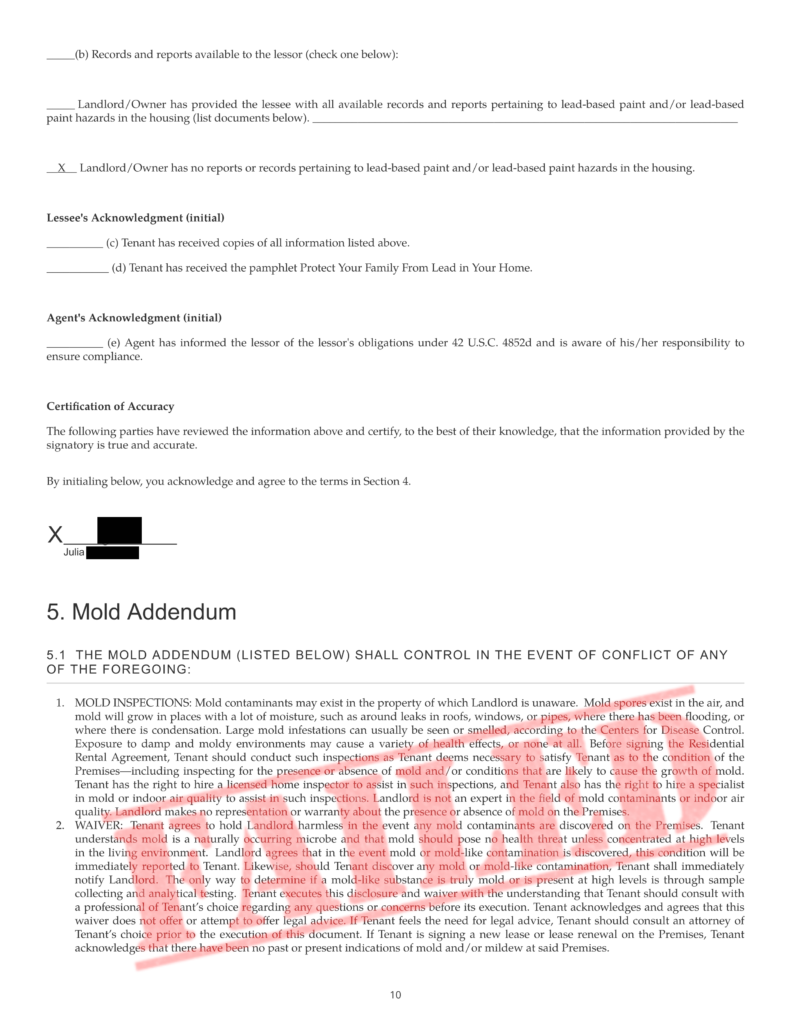
Legal Implications
Health & Safety Violation: The landlord’s failure to guarantee mold-free conditions could lead to health risks.
Unfair Contract Terms: This attempts to waive tenant rights, which may be unenforceable in Kansas.
Clause: “The RBP is charged at $39.99 per month and is defined as Additional Rent.” This is an unavoidable charge bundled into the rent, regardless of whether tenants want or use the services.
- Kansas Consumer Protection Act (KCPA): If the service is non-negotiable and falsely advertised as a benefit rather than a mandatory fee, it could be considered deceptive pricing.
- Unconscionable Contract Terms: Tenants are forced to pay for services they may not want.
Clause: “No discounts to the RBP Fee will be given if any element(s) of the RBP is discontinued or unavailable due to property-specific limitations.”
Issue: Even if services are unavailable, the tenant must still pay the full amount.
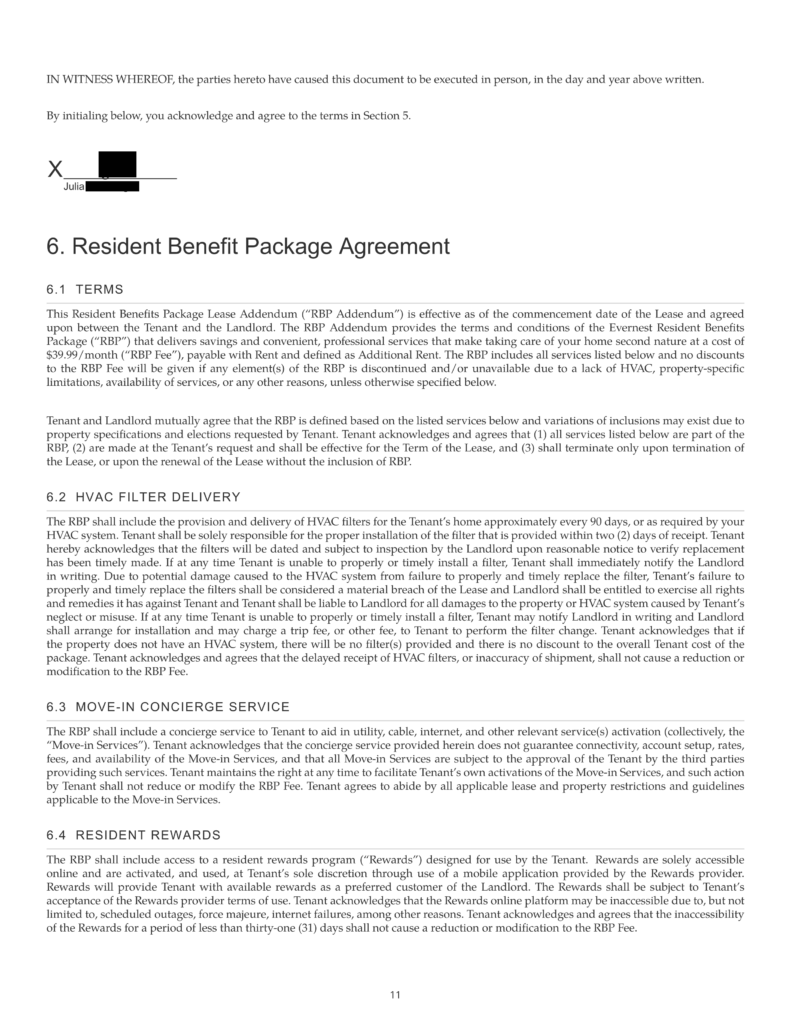
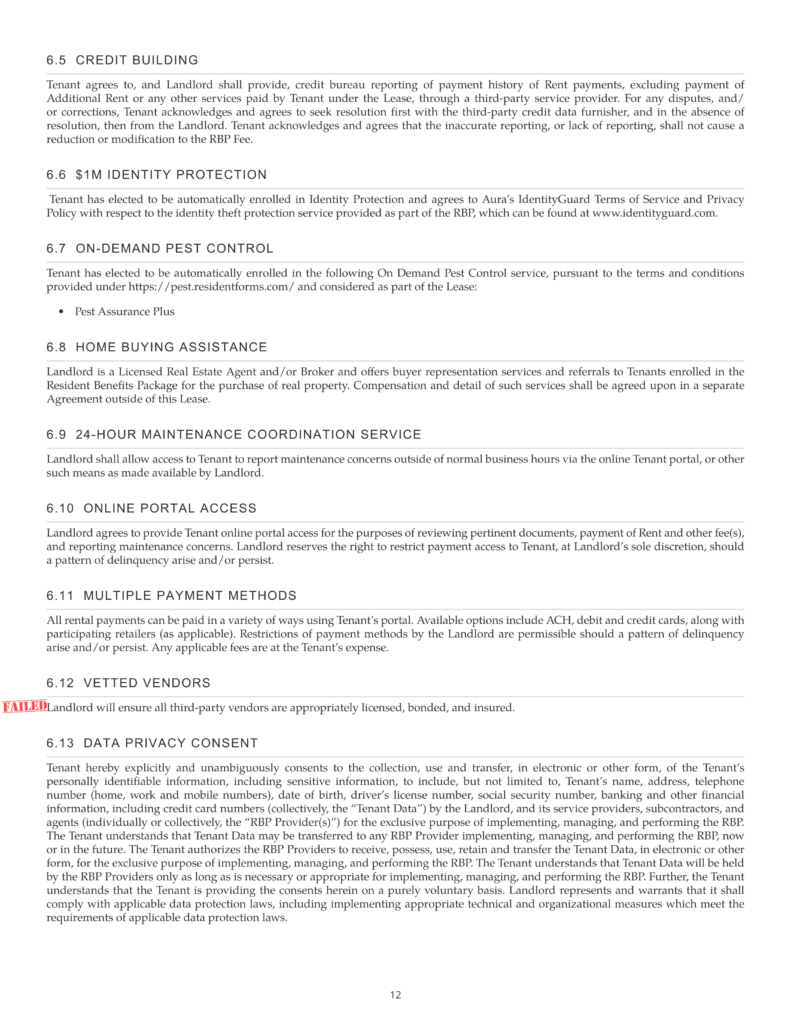
The lease forces tenants to give up privacy rights, allowing their data to be sold or shared with third parties.
Kansas law requires landlords to address habitability issues in a reasonable timeframe. This section shields the landlord from responsibility.
Clause: “Landlord shall allow access to Tenant to report maintenance concerns outside of normal business hours via the online Tenant portal…”
Issue:
There is no guarantee of timely repairs—it only allows tenants to report concerns.
Potential Violation:
